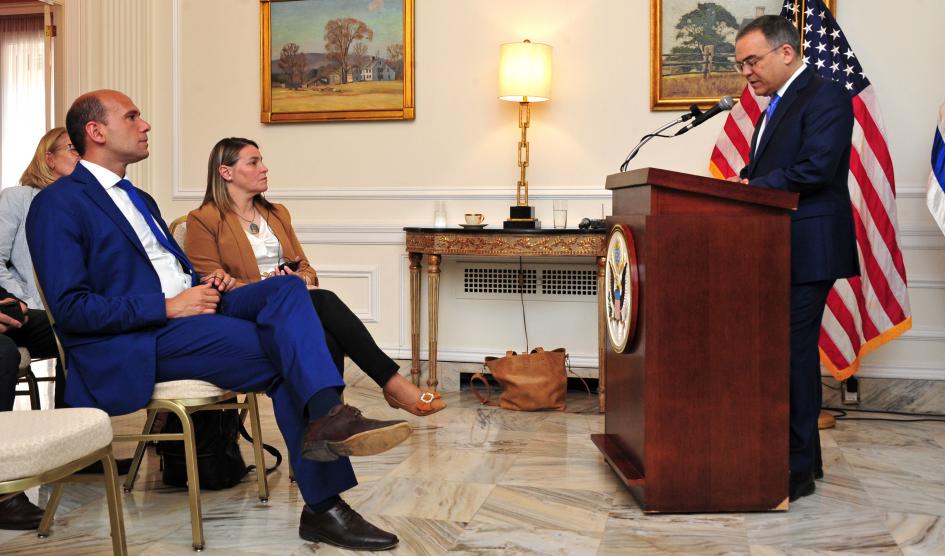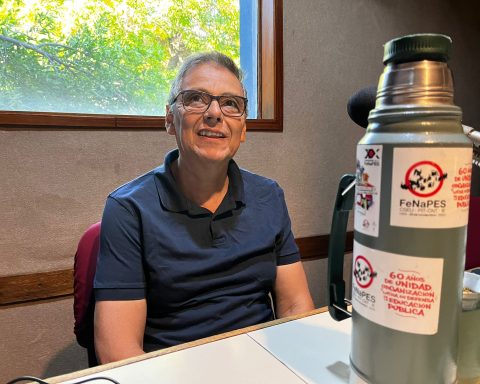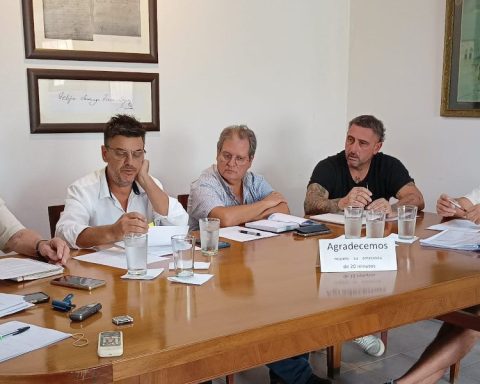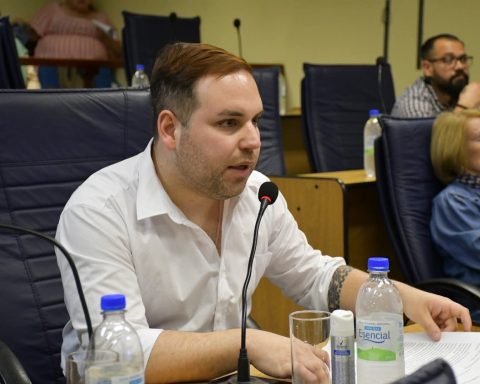Government authorities met, this Wednesday the 7th, with a group of North American professionals, experts in the prison reform carried out in the State of Texas, United States (USA). The meeting focused on the analysis of good practices of socio-labour insertion for released people. The Minister of Social Development, Martín Lema, reported that the work around the release of inmates will be deepened.
The meeting, held at the residence of the US ambassador, participated, in addition to Minister Martin Lema; the undersecretary of the portfolio, Andrea Brugman; the national director of Social Protection, Fernanda Auersperg and the general coordinator of the National Directorate of Support for the Released (Dinali), Daniel Fernández. The parliamentary commissioner for the Penitentiary System, Juan Miguel Petit, was also present.
On behalf of the US government, the acting deputy chief of mission of the US embassy, Eric Geelan, and the experts, Michele Deitch, Alycia Welch, and Marc Levin, participated.
In statements to the press after the meeting, Minister Lema recalled that, as of January 2022, Dinali became part of Mides, which implies that this portfolio must be involved through articulated work with other organizations. In this context, he reported that in a census carried out by the Secretary of State in 2020, it was determined that 54% of people living on the streets were at some point deprived of their liberty.
Lema expressed that, during the meeting, the specialists presented “novel actions” and others that are already being carried out in the country that imply a “great articulation” between institutions, in relation to prison and discharge policy, which have the objective of address circumstances related to housing, mental health and containment.
Lema considered that the existing initiatives aimed at the released should be deepened, such as supported housing, and mental health and addiction care. In this sense, the hierarch indicated that they are working with the Ministry of Public Health (MSP) and the Administration of State Health Services (ASSE) in a line of containment and action that allows users to be provided with first comprehensive support. .
In addition, he stressed that there is a “paradigm shift” around the follow-up directed at the released, which will no longer be through police departments, but in territorial offices of Mides.
The minister valued the application of the model in a comprehensive way in Texas as positive, and stressed that the experience yielded results that show a decrease in recidivism and in the street situation.
According to North American specialists, the focus of the United States model moves away from the punitive and focuses on mental health, addiction rehabilitation and comprehensive services for the released.
For her part, Michele Deitch explained that if the needs of people who are in the sphere of the criminal justice system are dealt with in time through community programs and services, they could be prevented from entering detention centers in a First instance.
He stressed that, once people are released again, it is important to provide them with comprehensive and sustained support, and estimated that the model that operates in Texas could be transferred to the reality of the Uruguayan prison system.
Finally, the expert highlighted that the US government decided to invest in community programs and services, instead of building more prisons. Not only was money saved, but 15 jail facilities were closed, she pointed out. In addition, she maintained that the crime rate was reduced, as was the rate of recidivism. Presidency
















